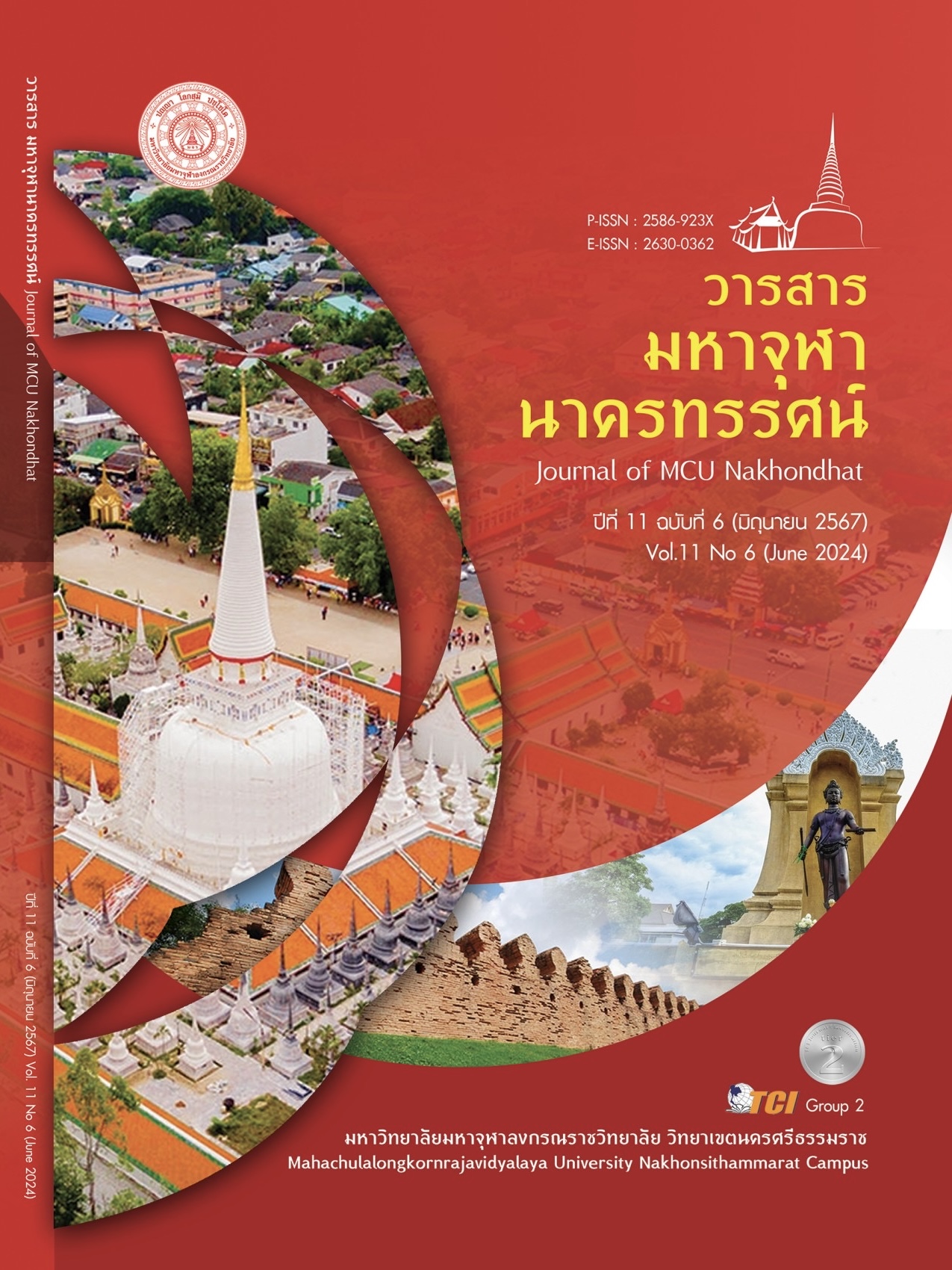DEVELOPING INFORMATION LITERACY STRATEGIES FOR UNDERGRADUATE UNIVERSITY TEACHER IN GUANGXI PROVINCE
Main Article Content
Abstract
The purpose of this research was to study the development of information literacy strategies for undergraduate universities teacher in Guangxi Province. Population This research consisted of 375 undergraduate university teachers in Guangxi Province. Selected by systematic sampling. The interview group consisted of 2 teachers from each undergraduate university. totaling 12 people, selected specifically. and experts in assessing the adaptability and feasibility of developing information literacy strategies for undergraduate universities. It consists of 15 senior lecturers from each undergraduate university. The research instrument was a questionnaire consisting of 4 areas: 1) Information awareness. 2) Information knowledge. 3) Information competence. and 4) Information ethics. information with a confidence value of 0.96, structured interviews and evaluation form Statistics for data analysis include percentages. Means. and standard deviations. The research results found that The current situation of information literacy in universities at the undergraduate level in all 4 areas is at a high level. When considering research results in this area from the highest level to the lowest, they are as follows: The highest level is information ethics. Second is information perception. and information ability is at the lowest level Its overarching goal is to develop an information literacy strategy for undergraduate universities, emphasizing the importance of information literacy. Effective training and communication Develop evaluation standards Incentive and appraisal system and integrate information literacy into teaching towards international quality.
Article Details

This work is licensed under a Creative Commons Attribution-NonCommercial-NoDerivatives 4.0 International License.
References
Bilawa, P. et al. (2016). Annals of Library and Information Studies. International Journal of Library Information Network , 63(9),176-181.
Changli, T. & Ruiping, D. (2023). Research on the Dilemma and Governance of Information Ethics in the Metaverse. Jouinals Books Proceedings, 15(12), 46-49.
Danhe, L. & Yifei, B. (2022). The connotation essence and cultivation path of college students' information. E-Education Research, 3(2), 127-138.
Guicheng, L. et al. (2021). Information Literacy and Information Search Course. Huazhong University of Science and Technology Press, 7(12), 132-134.
Jun, G. (2022). Research on the Improvement of Information Literacy of University teachers in the Environment of Education Informatization 2.0. Henan Library Journal, 5(4), 50-52.
Kedong, L. (2001). Digital Learning (I)-The Core of Information Technology and Curriculum Integration. E-Education Research, 7(8), 46-49.
Peng, Q. I. (2022). Ethical Review of Personal Privacy Protection in the Context of Social Informatization. Education Curriculum of University of South China. E-Education Research, 3(3), 167-168.
Ruihong, H. (2022). The strategy of strengthening the construction of scientific research management system. Frontiers in Business, Economics and Management, 12(26), 133-135.
Xinyu, W. (2022). Exploration on the Path of Improving the Quality of College Students' Information Literacy Education under the Background of New Four Subjects. Journal of Chongqing University of Arts and Sciences (Social Science Edition), 41(1), 114-126.
Yanping, C. et al. (2013). Research on the training mode and strategies of information literacyof university teachers. Information Science, 8(4), 101-104.
Yanting, S. (2020). Research on the development of higher education administration in China. Zhejiang Normal University, 11(08), 46-49


